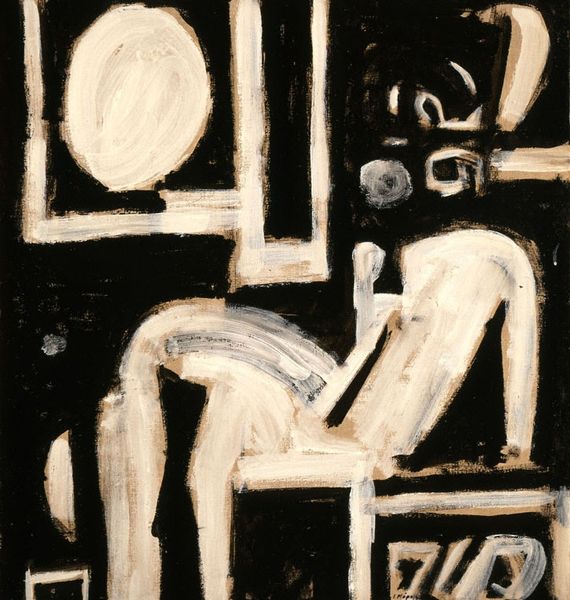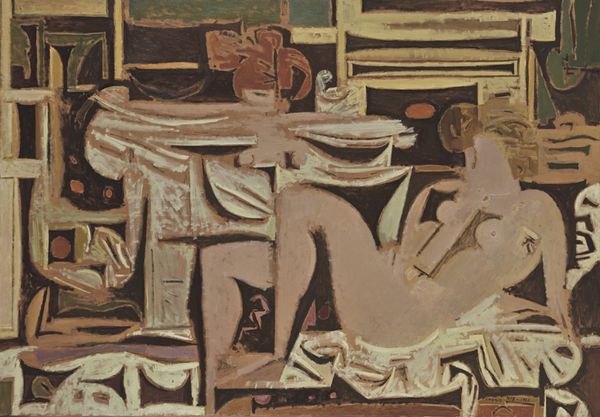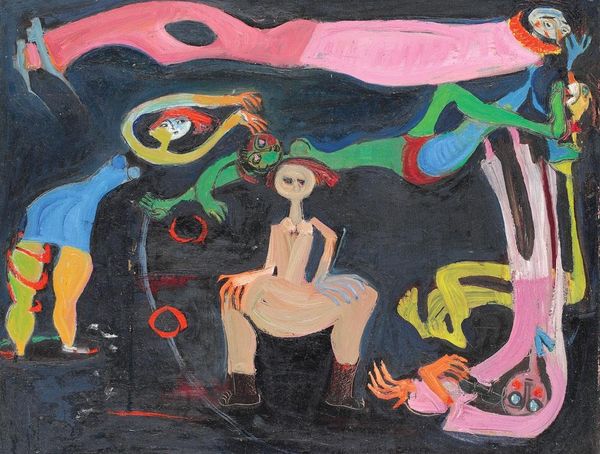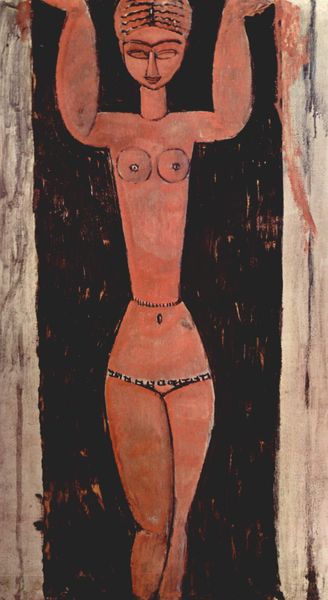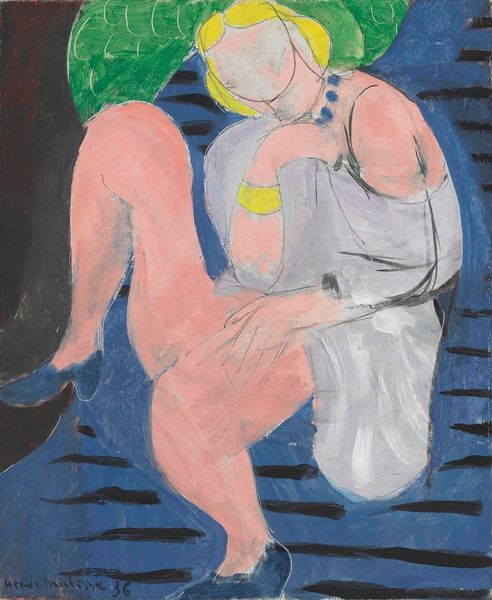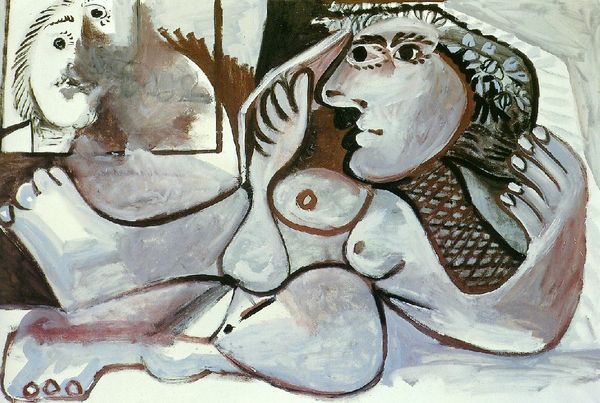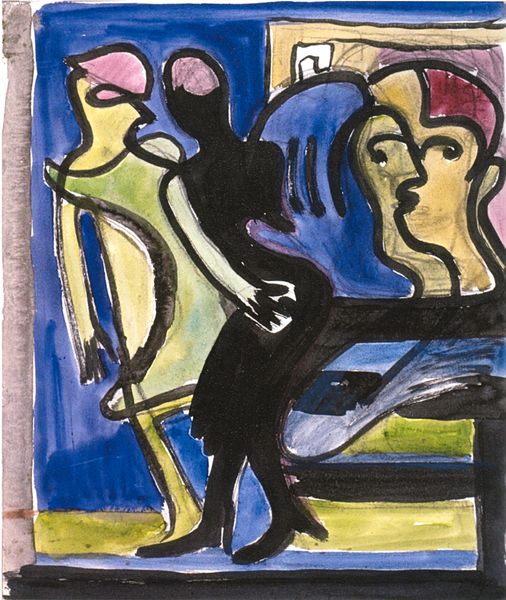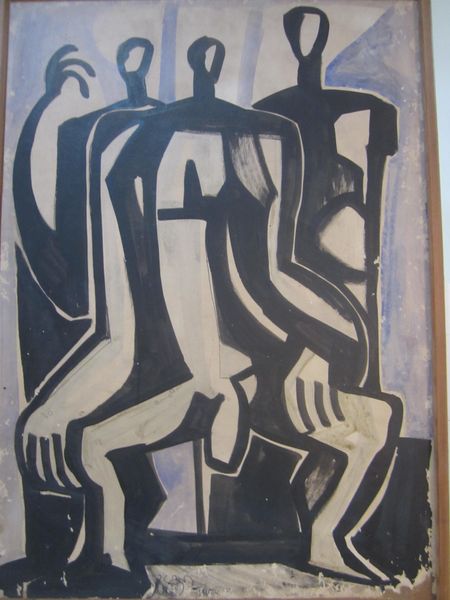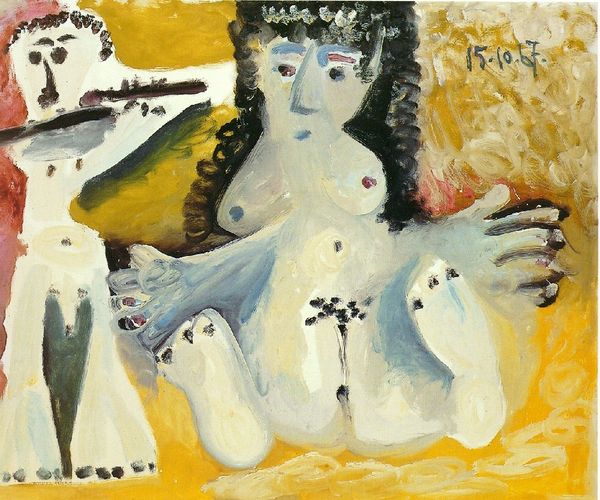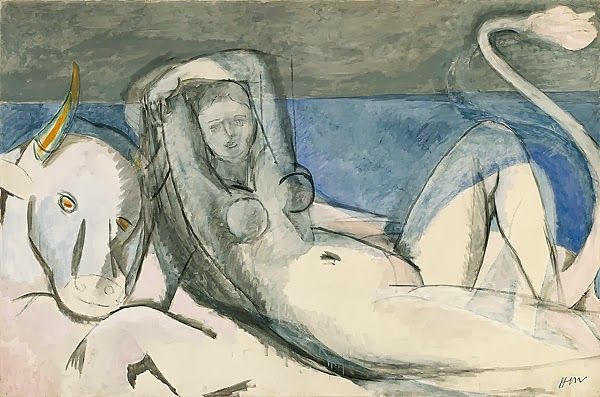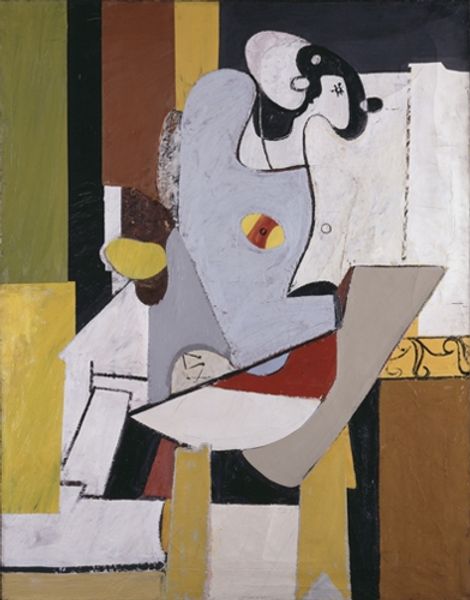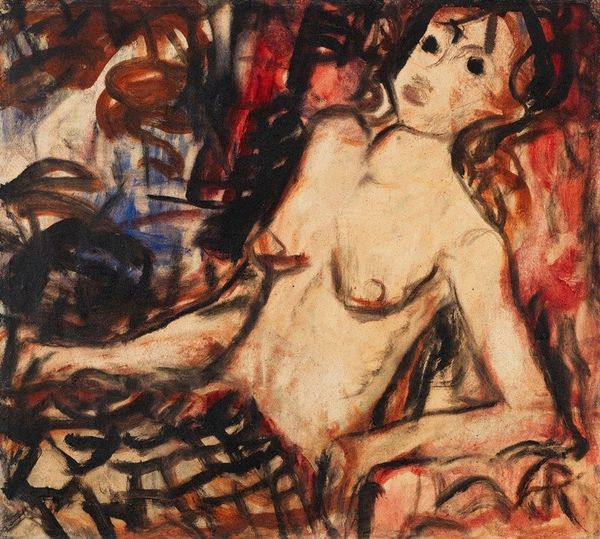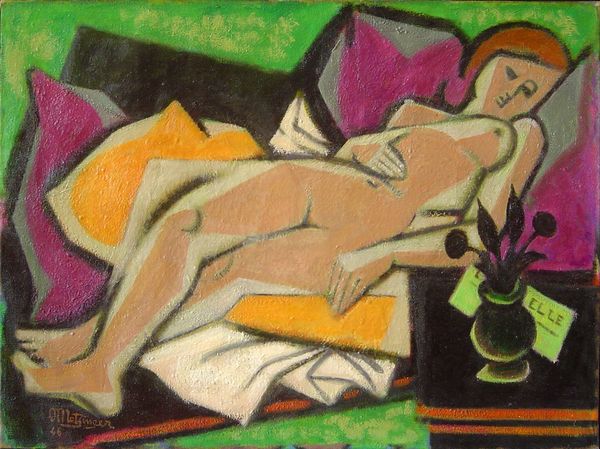
painting, acrylic-paint
#
abstract painting
#
painting
#
acrylic-paint
#
painted
#
figuration
#
acrylic on canvas
#
abstraction
#
nude
Copyright: Yiannis Moralis,Fair Use
Curator: We’re now observing Yiannis Moralis’s “Funerary Composition IV” from 1963, an acrylic on canvas work. Editor: Wow, it’s... striking. The stark contrast makes me think of a dream, or maybe a memory surfacing. It feels intimate, like stumbling upon something private. Curator: Indeed. Note how Moralis uses the stark palette and geometric forms to abstract the human figure. The composition relies heavily on the tension between positive and negative space, creating a push and pull for the eye. Editor: I see it—the way the white figure sort of melts into that dark, almost oppressive background. There's a vulnerability, but also a strength. And those geometric shapes aren't just decoration, they almost feel like prison bars. Is she trapped? Curator: The use of geometric shapes, recurring motifs in Moralis’s work, provides a framework for understanding the interplay of mortality and memory. Considering the title, it invokes reflections of loss. The grid behind the figure provides structural integrity. Editor: Loss...yes. I keep coming back to the pose. Relaxed, yet confined. Maybe it’s not literal bars, but the weight of memories, or even societal expectations? There’s an emotional depth, beneath those blocks of color, a real human presence trying to break free. Curator: The nude form has often been considered for the ability to express essential truths stripped of ornamentation. Moralis’ reduction of detail encourages a focus on basic relationships—between light and shadow, figure and ground. Editor: You’re right, stripping away the excess focuses our gaze on those contrasts and creates something profoundly universal, timeless, almost. Curator: This painting presents an opportunity to engage in questions about visual language—abstraction's capacity for representing fundamental realities about human existence. Editor: It's left me with more questions than answers, that’s for sure! This artwork proves that the power of suggestion resides as much in what you don't see as in what you do.
Comments
No comments
Be the first to comment and join the conversation on the ultimate creative platform.
